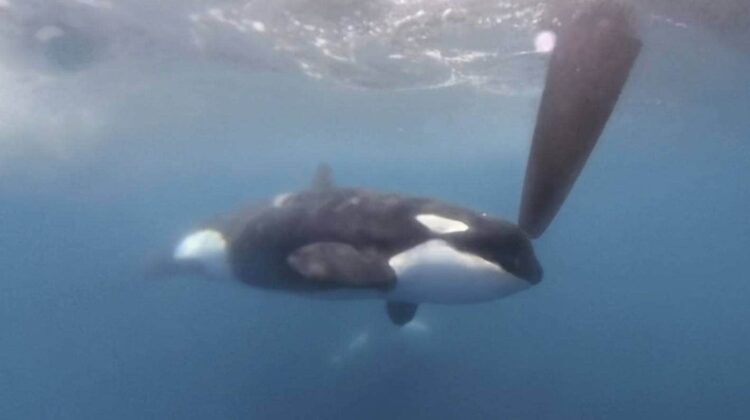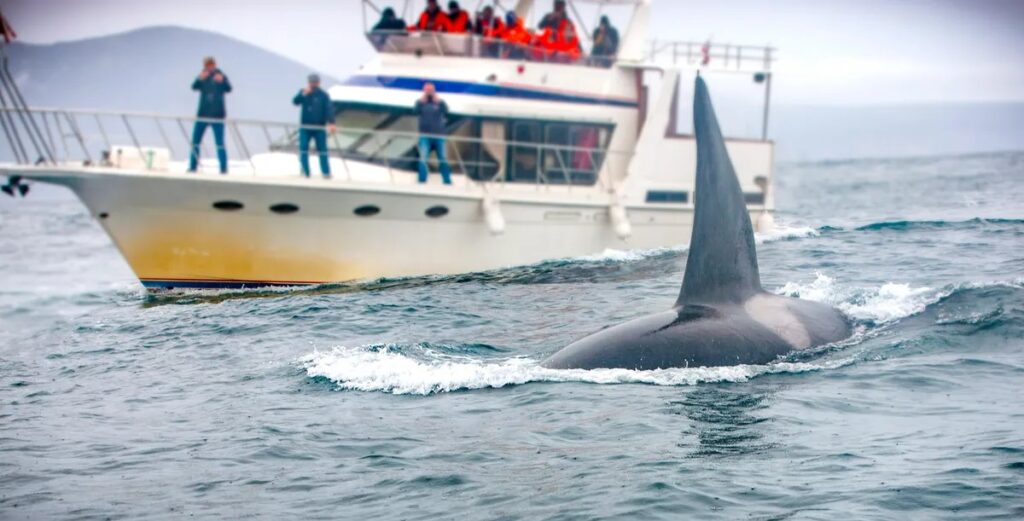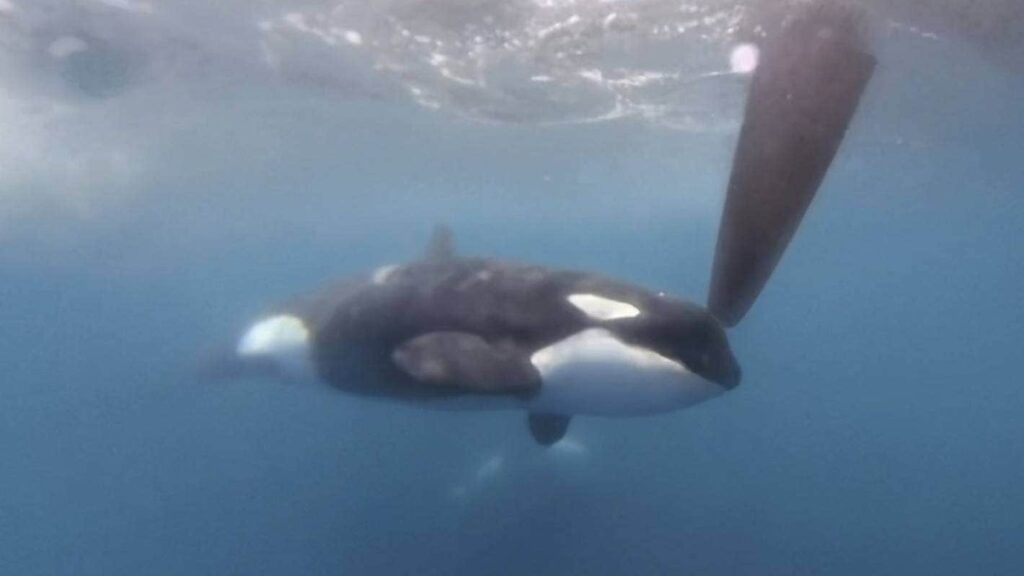
In a shocking incident on October 31, 2023, a pod of orcas engaged in a relentless encounter with a Polish yacht in the Strait of Gibraltar. This intense interaction persisted for a staggering 45 minutes, ultimately resulting in severe damage to the vessel, which eventually succumbed and sank near the port of Tangier Med. Despite the desperate efforts of the crew, port tugs, and the Moroccan Navy to rescue the yacht, they were unable to prevent its demise.
The owners of the yacht, who also operate sailing holidays in the Mediterranean, documented the incident in a Facebook post. They revealed that the orcas continuously struck the yacht’s rudder blade for the entire duration of the encounter, causing substantial damage and leakage. Fortunately, the silver lining in this harrowing ordeal is that none of the crew members were harmed, and they were safely transported to Spain.

Image credit: Bborriss.67/Shutterstock.com
The motivations driving such behavior among orcas remain shrouded in mystery. However, it’s essential to note that this is not an isolated incident, as orcas have been exhibiting increasingly forceful behaviors towards boats along the Iberian Peninsula since 2020. Over the past few years, several similar encounters with orcas have been reported in the waters around Spain and Portugal. These encounters vary in nature, with some involving mere contact with boats, while others have taken a more aggressive turn, inadvertently leading to the sinking of vessels.
But are these encounters truly signs of aggression, or is there something more complex at play? According to experts, these interactions are indicative of “playful social behavior” among orcas. In essence, scientists believe that these marine predators are partaking in a newly developed “fad” that has spread throughout their population, akin to a trend on social media platforms like TikTok. Their actions do not stem from a desire to attack vessels or humans with a thirst for blood, despite initial appearances.
While some have suggested that the initial encounters of this kind might have been a response to cautionary behavior, stemming from previous injuries caused by sea vessels, it’s essential to recognize that this does not represent a sudden “uprising” among these marine mammals.

This distinction is of paramount importance because the way we describe and understand these encounters can significantly influence our response to them. There is a concern among marine biologists and other scientists that projecting human motivations onto these animals could lead to retaliatory actions, including hunting or defensive measures against the orcas.
The scientists studying these behaviors stress the importance of avoiding an antagonistic narrative. Understanding the intricacies of these animals’ behaviors is crucial to ensuring harmonious coexistence, particularly as the Iberian orcas are critically endangered. It is our collective responsibility to protect these magnificent creatures and their habitat by fostering a sense of respect and cohabitation in our shared marine environments.

Leave a Reply